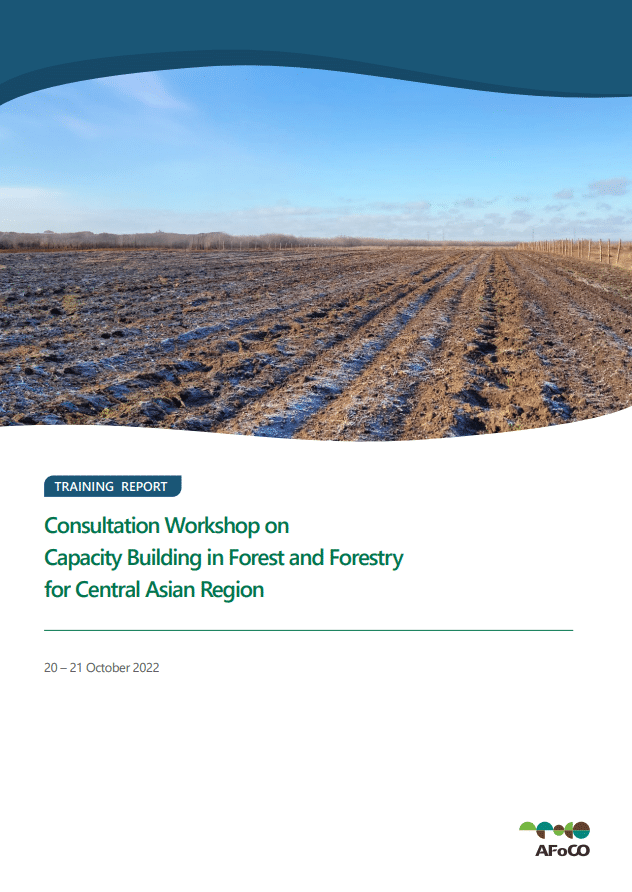The unique ecosystems and environmental characteristics of the Central Asian region, distinct from other regions in Asia, have been recognized within the current geographical coverage of AFoCO. This distinctiveness was emphasized during the “International Virtual Workshop on Integrated Forest Insect-Pest Management and Forest Restoration” co-organized by AFoCO and the Ministry of Tourism of Mongolia in April 2021. During the Asia Forest Forum held by AFoCO as a prelude to the XV World Forestry Congress on 30 April 2022, the heads of national research institutes in Central Asian countries proposed the establishment of a cooperation network through the AFoCO platform, underscoring the significance of a regional approach. These recent developments have spurred collaborative efforts towards capacity-building actions aimed at addressing critical forest-related issues by enhancing relevant skills and knowledge in forest management within the region. With the inclusion of the Kyrgyz Republic as a member party in 2022, AFoCO now possesses the necessary motivation to develop a
comprehensive long-term action plan specific to Central Asia, in collaboration with prospective member countries, to facilitate effective capacity-building cooperation in the region.
As part of a benchmarking effort, AFoCO RETC organized the “Consultative Workshop on Capacity Building for the Central Asian Region” from 20 to 21 October 2022 in Almaty, Kazakhstan. The workshop brought together four AFoCO member parties (Bhutan, Kazakhstan, Kyrgyzstan, and Mongolia) and two prospective member countries (Tajikistan and Uzbekistan). It served as a platform to identify capacity-building needs and specific topics at both country and regional levels within the forest and forestry sector of Central Asia. Situational analyses were conducted to evaluate the capacity-building requirements and potential training topics for the region. Additionally, a pool of resource persons and facilities was identified to facilitate the development of a collective action plan for capacity-building initiatives in the Central Asian region.
Read the Policy Brief HERE.


